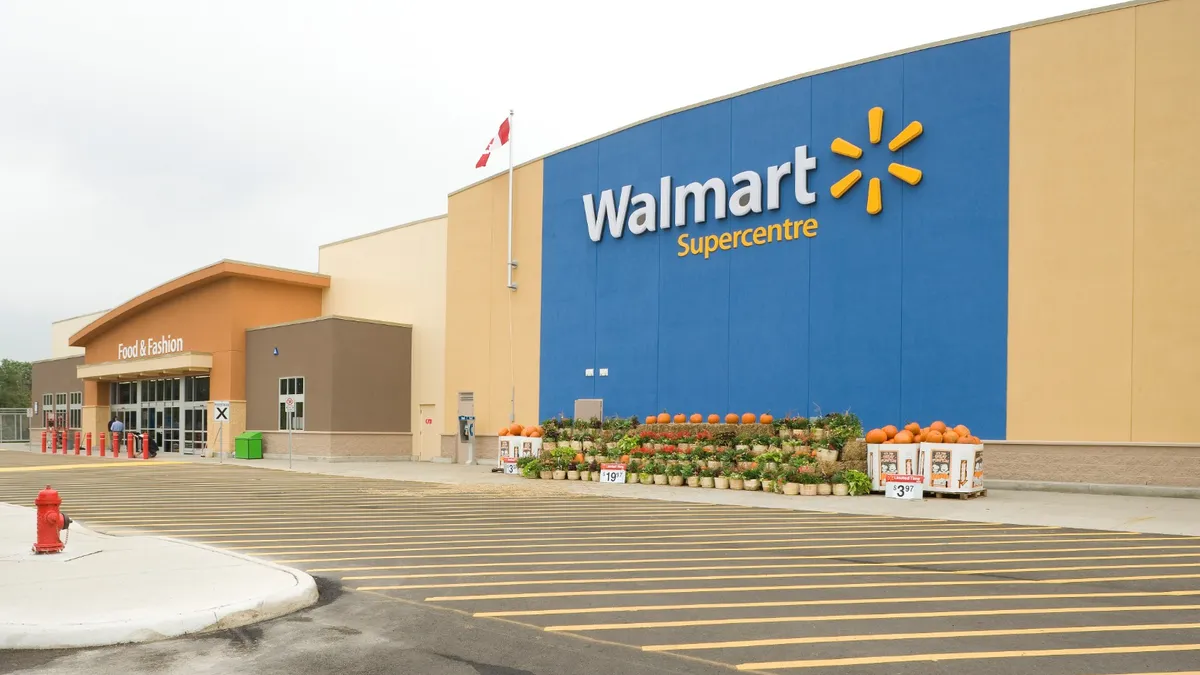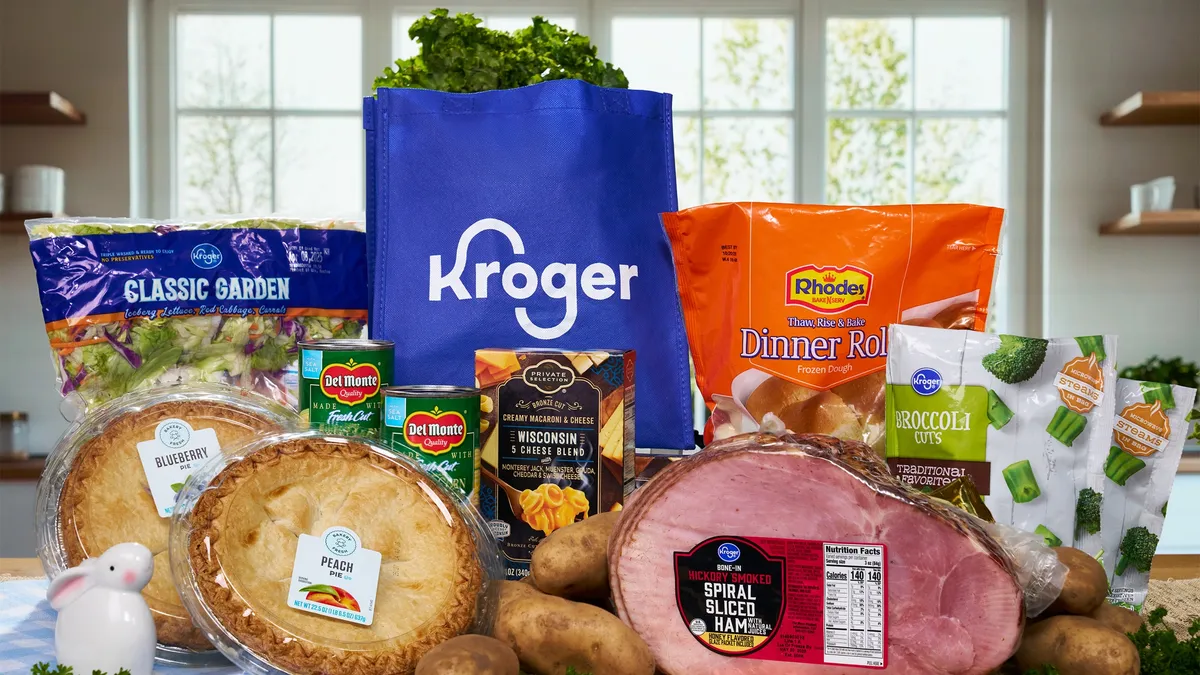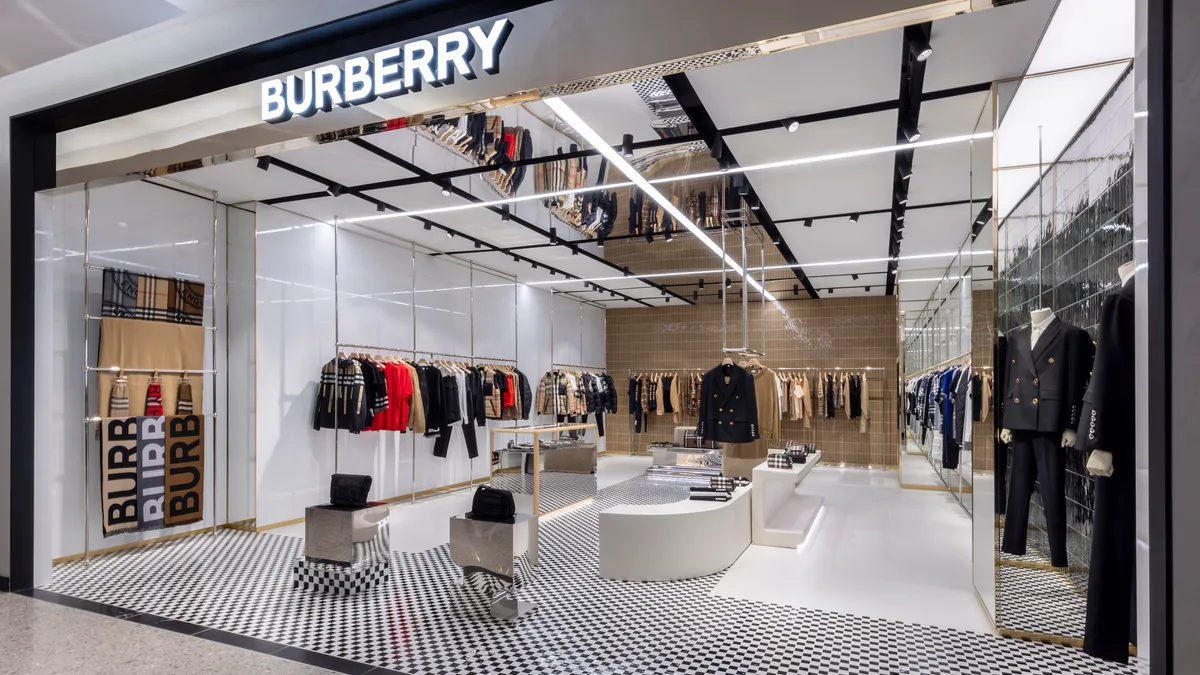When Barbara Clarke-Ruiz began making treats for her dogs Pepper and Chili, she never imagined the freeze-dried liver bites could end up on Walmart's shelves.
The apparel designer, who designed activewear for Venus Williams among others, is one of 850 diverse entrepreneurs invited to present their products at Walmart's virtual Open Call event for U.S.-sourced products Oct. 1.
Clarke-Ruiz, like other participants selected in the event, will have to prepare her supply chain to serve Walmart stores potentially across the country. Walmart's procurement and operations teams will have to integrate new vendors into the regional or national supply chain to stock products on the retailer's shelves.
Participants in the event can secure deals to supply their products to Walmart stores, Sam's Clubs and Walmart.com. More than 4,800 businesses representing 49 states, the District of Columbia, Puerto Rico, Canada, Australia and Mozambique applied for the chance to pitch a Walmart merchant. That's a 44% increase in submissions over the previous year.
The Open Call event is part of Walmart's 2013 commitment to buy an additional $250 billion in U.S. produced products by 2023. The event is open to entrepreneurs and small business owners with products that are made, sourced or grown in the U.S.
Due to the COVID-19 restrictions, Walmart has shifted to a virtual event in which entrepreneurs will present to buyers via Zoom meetings. The six previous events were held at Walmart headquarters in Bentonville, Arkansas. In addition to the 30-minute pitches, the virtual event includes a series of breakout sessions, many of which will be open to the public due to the virtual nature of the event.
More than 4,800 businesses representing 49 states, the District of Columbia, Puerto Rico, Canada, Australia and Mozambique applied for the chance to pitch a Walmart merchant. That's a 44% increase in submissions over the previous year.

Adapting to a virtual event opened up the field for participants who may not have been able to travel for an in-person meeting, according to Charles Crowson, local communications director – Northern U.S. for Walmart.
"The virtual component of it was made out of necessity, but now it's become very beneficial both for the suppliers and the company," he said.
Entrepreneurs prep their supply chains for the next level
Business owners who are selected to be Walmart suppliers don't have to worry about being overwhelmed with large orders — but they're still taking stock and getting ready to increase their production capacity.
"The suppliers work individually with the teams who work with the buyer for their products," Crowson said. "They work collaboratively based on the product placement and the methods which make the most sense for the type of product they sell."
Clarke-Ruiz's company, Glen Ridge, New Jersey-based Lick You Silly Pet Products, already sells the all-natural freeze-dried dog treats on Amazon and at 21 specialty retailers, as well as from the company website. If she's selected as a supplier, Clarke-Ruiz expects to start out small supplying to a few Walmart stores in one region.

In the meetings, buyers will ask potential suppliers how much product they could turn out and how long it would take to fulfill orders. Her vendors are on standby to prepare for a large order. Open Call participants have already had preliminary Zoom meetings with Walmart to review the process.
"Walmart definitely understands how to put products in their stores based on the data they have available to them," she said. "They're very conscious about not overwhelming a small company."
Ira Kaganovsky spent four years developing an all-natural deodorant with only six ingredients for her company Freedom Natural Deodorant. She was surprised when Walmart wanted to hear about her line of all-natural sanitizing wipes.
"When we applied, Walmart said they were interested in our wipes, but we could pitch the deodorant too," Kaganovsky said.
"They're very conscious about not overwhelming a small company."

Barbara Clarke-Ruiz
CEO, Lick You Silly Pet Products
Earlier this year, she was prepared to launch the wipes with upscale hotels but that plan was postponed due to COVID-19. Still, Alaska Airlines ordered millions of the wipes during the pandemic. The products are already stocked at more than 300 retailers and sold on the QVC shopping channel.
Kaganovsky contracts with three manufacturers for deodorants and two for wipes, located across the country. She'll be able to fulfill Walmart orders from the closest factory. She has already talked with her suppliers to develop cost and delivery estimates based on shipping times for ingredients and fulfillment, and production quantity breakpoints.
Kaganovsky launched the company in Las Vegas after four friends were diagnosed with breast cancer and couldn't use traditional deodorants during treatments. She created her own formula and bootstrapped the company over the past four years. Being selected to supply Walmart would be a game-changer.
"We're over the moon ecstatic," she said. "It would finally legitimize so much of what we're doing, it would be amazing."
Rolling with changes in the e-commerce age
Dawn Lafontaine turned her love of cats into a business with Cat in a Box cat furniture. She created cardboard boxes for cats to play on and their owners to decorate with stickers and other creative artistry. She got the idea after visiting a fellow cat lover's home that had Amazon boxes sitting around the living room.
She's a one-person show who works with vendors to design, produce and distribute the cardboard boxes that look like a milk carton and a slice of cheese. Lafontaine contracted with a box manufacturer close to her home in Ashton, Massachusetts, to produce the cat habitats. She sells from her website and via Amazon. Her first test product sold out on Amazon in three weeks, so she knew there was a market.

For the Walmart presentation, she is showcasing the Breezy Beach Cottage Cardboard Cat Playhouse. There's also an accessory sticker set for cat owners to personalize their cat's box. The sticker sets, like the boxes, are printed with FDA-approved human-safe toners.
She found that early products were not e-commerce ready or shelf-ready, so when the U.S. Postal Service updated shipping costs for bulky items, LaFontaine redesigned her products to be more e-commerce efficient.
If the Cat in the Box furniture is selected for Walmart's shelves, she expects her suppliers to step up.
"The factories that are used to create this product, both of them are able to meet pretty significant demand pretty quickly," she said.
Walmart's efforts to grow its domestic supplier base will shorten its supply chain by sourcing products closer to consumers. Small entrepreneurs have the opportunity to create jobs in their communities as they grow their businesses.
"Being selected can be life changing for these entrepreneurs, and they can open up their scale to employ more friends and neighbors," Crowson said.
This story was first published in our weekly newsletter, Supply Chain Dive: Procurement. Sign up here.






















